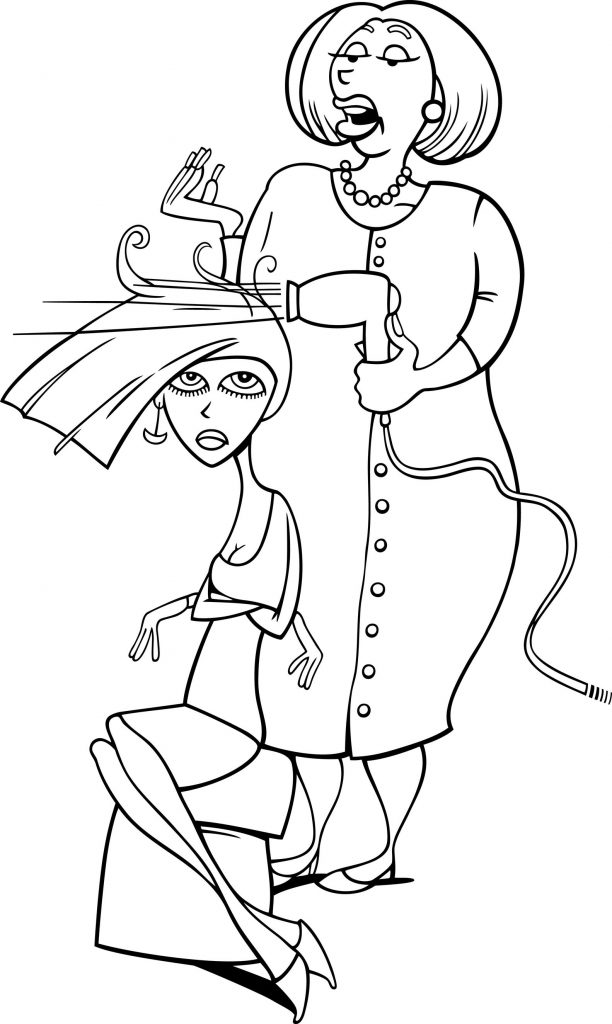The people who talk and talk and talk
How do you get on with incessant talkers – those people who talk at us – and talk and talk and talk.
Have you noticed how really skilled Incessant Talkers aren’t just boring – they actually affect our mood and our performance by scrambling our thinking.
I had an experience of this not so long ago whilst driving with an incessant talker as a passenger.
As I began negotiating a tricky traffic situation I recognised that I couldn’t concentrate because their flow of verbiage was preventing me from assessing how to handle things.
Fortunately I recognised this in time and asked them to stop talking until I had got into the traffic flow. This they did – and immediately resumed their flow, exactly where they’d left off, and continued for the rest of the journey.
What’s it like to be them
This got me thinking about what goes on for incessant talkers – in NLP terms ‘modelling’ what they were doing – and it’s a quite fascinating skill although it may not be a desirable one to develop if you want to have and keep friends. I noticed that:
- They seemed to have no interest in whether or not I was interested in what they were saying.
- They seemed to have no awareness of my need to pay additional attention to my driving at certain points.
- Not once was I given a moment to consider what they had said – their ideas followed one another back to back, without so much as a second’s pause.
- If I forced my way in I was allowed to comment on things, briefly – but my comments didn’t seem to have been heard.
- Not once was my opinion asked for.
- Their flow of chatter and topics never stopped.
It’s an amazing feat
From an NLP standpoint it was quite an amazing feat. And, as I listened and watched a number of incessant talkers in action, I began to recognise some common patterns – and this Newsletter article is the result. It offers a few ideas on what makes them tick – and some insight into how their talking may be affecting their listeners.
Oh, and it also has some self defence tips.
Hi Reg
Have just read your newsletter re the above and everything you say mirrors my son’s behaviour. He was diagnosed with Aspergers syndrome early on in life and it is facinating to see how he “copes” in the types of environment you mention. When he starts to talk, he will open with a “How are you?” as he knows this is the social norm. He will then steer a conversation round to what he wants to talk about and you can see him thinking of what he will say next, no matter what the person he is talking to has said and continue to dominate the conversation until the other person has had enough! Your article makes me wonder how many of these incessant talkers may have undiagnosed Aspergers or Autism.
A good post, many thanks.
Regards
Pete
Hi Pete
That’s fascinating – I hadn’t made the possible connection with Asbergers.
And it sort of makes me wonder if there isn’t a continuum between ‘officially diagnosed Asbergers’ at one end and Incessant Talkers at the other?
Which then raises the question: do some Aspergers people really just need some good training in social skills – or (somewhat less attractive as an option) do some Incessant Talkers need to be diagnosed as having a form of Asbergers…?
Reg
Hi Reg, I retire as a pyschiatric nurse today and found this topic interesting. In my years of practice I would suggest two ‘models’ for this behaviour – there are probably more
Firstly, the person is narcissistic and the recipient is simply an essential prop in the never ending need to reflect back their own importance in a compulsive strategy to keep the lurking reality at bay. Of course you being the driver is the perfect prop – you cannot escape.
The other explanation is that the person is highly anxious and fears what will happen if they stop speaking – it is an attempt to control the uncontrollable. Sometimes I have observed this behaviour escalate almost to the level of mania! The subject is suffering and needs to be helped.
The way to tell the difference is that the latter subject will of course be different at the next encounter whereas the former will be exactly the same.
Alison
Hi Alison: congratulations on completing your stint as a psychiatric nurse – here’s to the next phase!
Defitnitely agree with the ‘wrapped up in themself” observation – as with the audience, for that is what we/they are, being the prop. Which means that, if we don’t change our way of dealing with them then we are complicit in our own discomfort 🙂
Reg